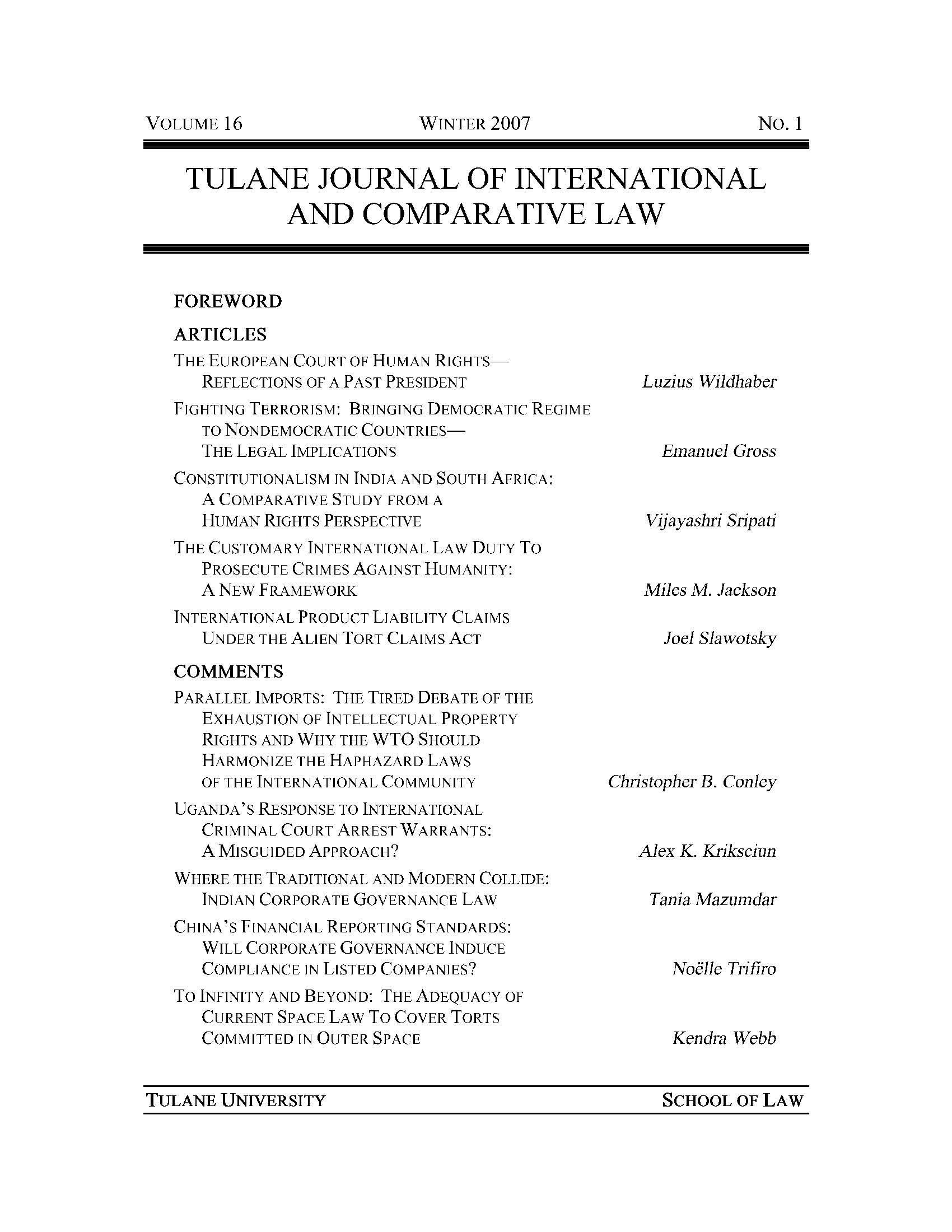The Customary International Law Duty To Prosecute Crimes Against Humanity: A New Framework
Abstract
Within its assumed analytical framework, contemporary scholarship cannot assert plausibly
that customary international law imposes a duty on states to prosecute crimes against humanity.
Amnesties are necessarily inconsistent with a duty to prosecute, and the sheer glut of state practice
granting amnesties in times of crisis to perpetrators of these crimes is seen to prevent the duty to
prosecute from arising. Although scholars recognize the normative shortcomings of this
conclusion, this is the position the present analytical framework requires. A new framework alters
the outcome. This Article transplants the derogation provisions of international human rights law
into customary international law, retrospectively analyzing the six well-known amnesties. If the
amnesty in question was granted at a “time of public emergency” as defined in the human rights
instruments, it should properly be seen as derogation from the putative duty to prosecute rather
than state practice contradicting the assertion of that duty. This new analytical framework diverts
the bulk of state practice seen by scholars to be contrary to the duty to prosecute into a separate
category constituting an exception from that duty. Combined with new evidence in support of the
duty, it is now plausible to assert that customary international law imposes on states a duty to
prosecute crimes against humanity from which a small derogation exception is carved.
